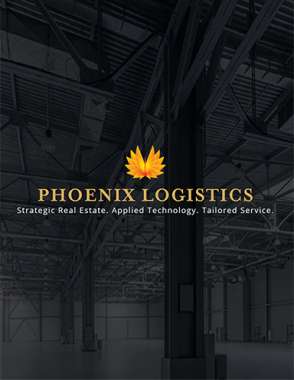Is Industrial Real Estate Recession-Proof?

Some experts argue that low unemployment, record corporate earnings, and GDP growth in Q3 indicate that the U.S. is not yet in a recession, many economists agree that a recession is coming soon.
Economic Recession
The official definition of a recession says that the economy is in a recession if the country’s gross domestic product declines for two consecutive quarters.
Under this definition, the United States entered an economic recession during the summer of 2022.
However, some experts argue that low unemployment, record corporate earnings, and GDP growth in Q3 indicate that the U.S. is not yet in a recession.
Unfortunately, whether we’re in a recession right now may be a moot point, as many economists agree that a recession is coming soon.
The U.S. Commercial Real Estate Boom
As other commercial real estate sectors (CRE) batten down the hatches to prepare for an economic downturn, the U.S. commercial real estate market continues to experience an industrial real estate boom.
Though rising industrial demand began more than a decade ago as the country came out of the last recession - known popularly as The Great Recession - most of the industry’s recent successes can be attributed to the e-commerce boom resulting from the COVID-19 pandemic.
With industrial real estate still going strong despite other signs of economic volatility, logistics property owners and investors find themselves wondering if investing in warehouses will help them successfully weather the coming storm.
Will A Recession Affect Industrial Real Estate?
Will the inertia of the current warehouse and manufacturing boom carry the industrial boom through the recession?
It’s difficult to predict the exact impact of a recession without knowing how deep the recession itself will go. With that said, we can reasonably make some predictions about the impact of an economic downturn on warehouses and factories:
- The gap between supply and demand won’t balance soon. Industrial real estate vacancy has hovered between 3% and 4% in recent months. In the highest-demand areas, vacancy hovers around 1%. Until developers can generate enough supply to catch up, industrial demand should remain largely unaffected by economic troubles. We’re unlikely to see the supply of warehouses and factories catch up to demand before late 2023.
- Consumers will still need to buy things. Regardless of economic conditions, people will continue to consume goods at some level. Those goods must get manufactured and stored. Despite signs of cooling consumer spending, it’s extremely unlikely that it would drop to the point that demand for industrial properties balances out with the nation’s current supply - especially when considering the strong labor market.
- Big box stores (and 3PLs that work with them) will be an industrial cornerstone. With inflation still rising, consumers will need to shop where they can find cheaper goods. Big box stores can leverage their bulk purchasing capabilities to keep prices in check, ensuring steady business. That same business will keep driving warehouse demand.
- U.S. manufacturing will continue its comeback. Many of the benefits of offshoring have disappeared throughout the pandemic, causing some U.S. companies to move production to American soil. This trend will hold especially true for sustainable manufacturing since the Inflation Reduction Act has incentivized these businesses to establish U.S. operations. Any growth in domestic manufacturing will be positive for industrial real estate.
Given the current strength of the industrial market, it seems all but certain that the industry will ride out the coming recession as a top CRE class, just as it did during the pandemic. Also, a word of advice: Supply chain stakeholders should keep an eye out down the road. They may find some lucky deals when financial institutions and investors begin to sell off the various warehouses they acquired to ride out the economic slump.
About Phoenix Logistics
Strategic Real Estate. Applied Technology. Tailored Service. Creativity. Flexibility. These fundamentals reflect everything we do at Phoenix Logistics. We provide specialized support in locating and attaining the correct logistics solutions for every client we serve. Most logistic competitors work to win 3PL contracts, and then attempt to secure the real estate to support it. As an affiliate of giant industrial real estate firm Phoenix Investors, founded by Frank P. Crivello, we can quickly secure real estate solutions across its portfolio or leverage its market and financial strength to quickly source and acquire real estate to meet our client’s needs.
More Content from Phoenix Logistics
Article Topics
Phoenix Logistics News & Resources
4 Best Practices for Online Order Fulfillment In 2023 Is Industrial Real Estate Recession-Proof? 9 Tips for Offsetting Rising Parcel Rates Tips for Retaining Your Peak Season Temp Labor The Great Decoupling and What It Means for Industrial Real Estate How Does the Inflation Reduction Act Impact Industrial Real Estate? Not in My Backyard: Warehouse Edition More Phoenix LogisticsLatest in Warehouse|DC
Spotlight Startup: Cart.com is Reimagining Logistics Walmart and Swisslog Expand Partnership with New Texas Facility Taking Stock of Today’s Robotics Market and What the Future Holds U.S. Manufacturing Gains Momentum After Another Strong Month Biden Gives Samsung $6.4 Billion For Texas Semiconductor Plants Walmart Unleashes Autonomous Lift Trucks at Four High-Tech DCs Plastic Pollution is a Problem Many Companies are Still Ignoring More Warehouse|DC













